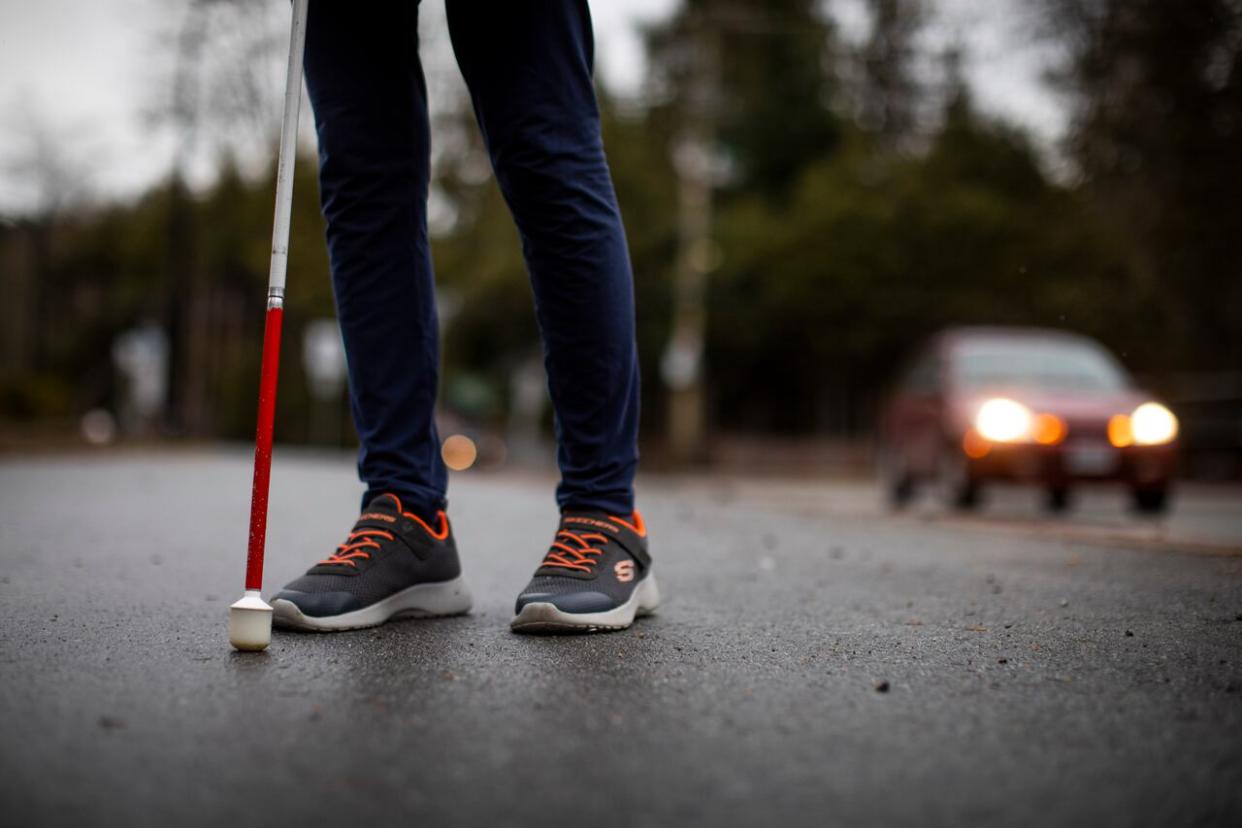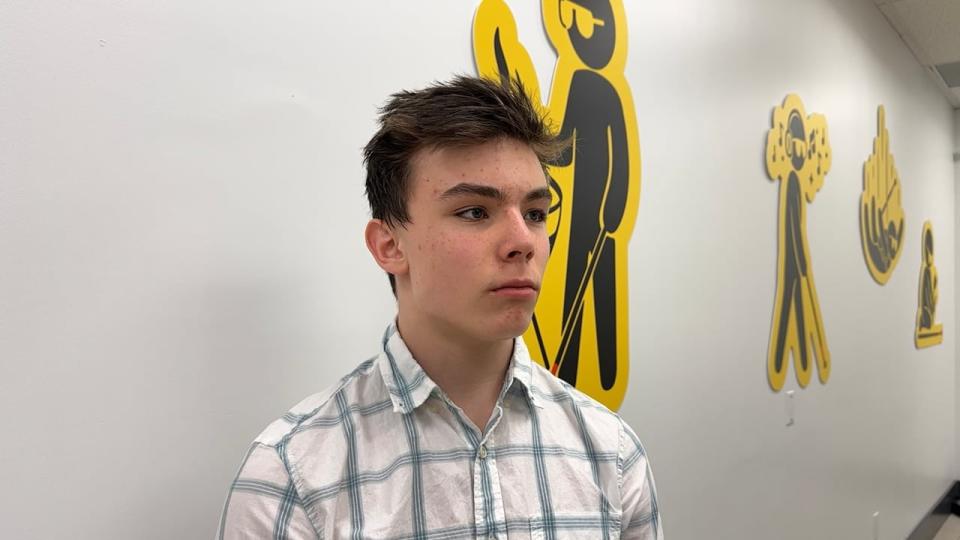Cancelled since COVID-19, blind youth call for return of in-person programs

Harry Nickerson is losing his vision and needs help learning to navigate the world safely.
The 14-year-old was diagnosed five years ago with a degenerative disease called retinitis pigmentosa that is degrading his peripheral vision.
He said he connected with the Atlantic Provinces Special Education Authority (APSEA) shortly after his diagnosis.
"From the get-go, before the pandemic, it felt great," he said. "I was getting lots of great support."
But the authority halted some of its in-person programs in 2020. Last year, it rolled out a new model with virtual offerings.
Nickerson said what he can access through APSEA now, as his vision continues to degrade, "simply isn't enough."

14-year-old Harry Nickerson has a degenerative eye condition and is losing his vision. He says he is missing out on learning important skills that will help him live in a sighted world. (Taryn Grant/CBC)
He and others in the blind and visually impaired community across Atlantic Canada are calling for the authority to bring back all of its pre-pandemic services.
One of those services was a week-long residency program at the group's Halifax campus where youth would learn essential life skills, including navigating city traffic, how to use technology to assist them in classrooms and how to cook in a kitchen.
No cuts, says APSEA
APSEA says no services have been eliminated, rather they've undergone adjustments following pandemic shutdowns.
In an email, a spokesperson for the organization said programs now better reflect the province's inclusive education policies by being offered closer to home.
"Family education can be offered while working around the schedule of the family," said Pam Edmonds.
She said APSEA reviewed its former in-person short-term residency program and found that it was not easily accessible for everyone in the region, given that the authority serves all of Atlantic Canada, and the residency program was in Halifax.
She said the program did not provide followup to ensure students become independent, and it took students out of their regular classrooms.
"Removing learners from this environment will create gaps in their learning," Edmonds said. "Acknowledging the importance of other skills, many of them are now embedded in the general education system and our role is to support access to these outcomes."
Not a suitable replacement
Caelin Lloyd, who attended APSEA's programs in the past, said the group's justifications are disingenuous.
He grew up in Bridgetown, N.S., and said he never had a problem getting to Halifax for the residency programs because the authority removed all travel barriers, paying mileage or providing transportation.

Caelin Lloyd is visually impaired and says he would not have been able to move to Halifax from his hometown to attend university if not for APSEA's short-term residency programs where he learned essential life skills. (Taryn Grant/CBC)
"I would not have been able to learn all the skills that I needed to move to Halifax to work and go to university had it not been for short-term programs," he said.
Lloyd said virtual programs are not a suitable alternative.
One upcoming virtual session, according to Lloyd, is meant to teach blind and visually impaired children how to navigate snowbanks.
"How in the world is a blind child supposed to learn challenging orientation and mobility skills, like navigating snowbanks, through a screen they can't see?"
Lloyd said it's time for provincial governments in the region to step in and ensure the return of pre-pandemic programs.
Nova Scotia government aware of changes
APSEA is primarily funded by provincial government grants. A spokesperson for Nova Scotia's Department of Education and Early Childhood Development said the department has met with the organization about the changes to its programming.
"We acknowledge that with this change comes questions and concerns, especially as many former students and families have had positive experiences with past models," Jenna MacQueen said in an email.
"The Department was assured that APSEA leadership will monitor and evaluate the effectiveness of the new service delivery model to ensure that students will continue to gain the skills and competencies they need to be successful in whatever path they choose," she said.
No more psychological assessments
Rick Mamye, the father of an eight-year-old who is visually impaired, said APSEA has also stopped offering education assessments by an in-house psychologist, which are meant to help classroom teachers cater to student needs.
"Over 70 per cent of children who are blind or visually impaired also have an additional learning disability and my son falls in that category right now," said Mamye.
"We can't get the assessment to properly identify what kind of resources would be required to close that gap."
He said he's been trying to find a psychologist in private practice to assess his son, to no avail.
In the meantime, he worries his son is falling behind his peers.
APSEA did not address the discontinuation of psychological assessments in its statement.
MORE TOP STORIES


